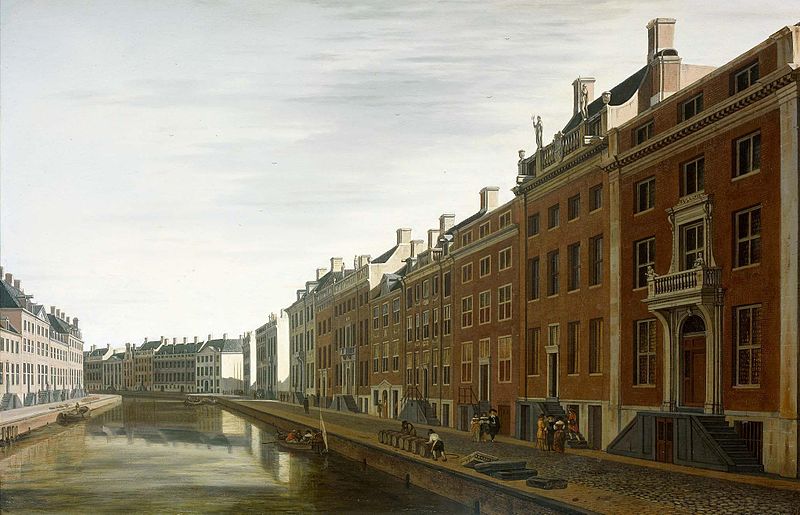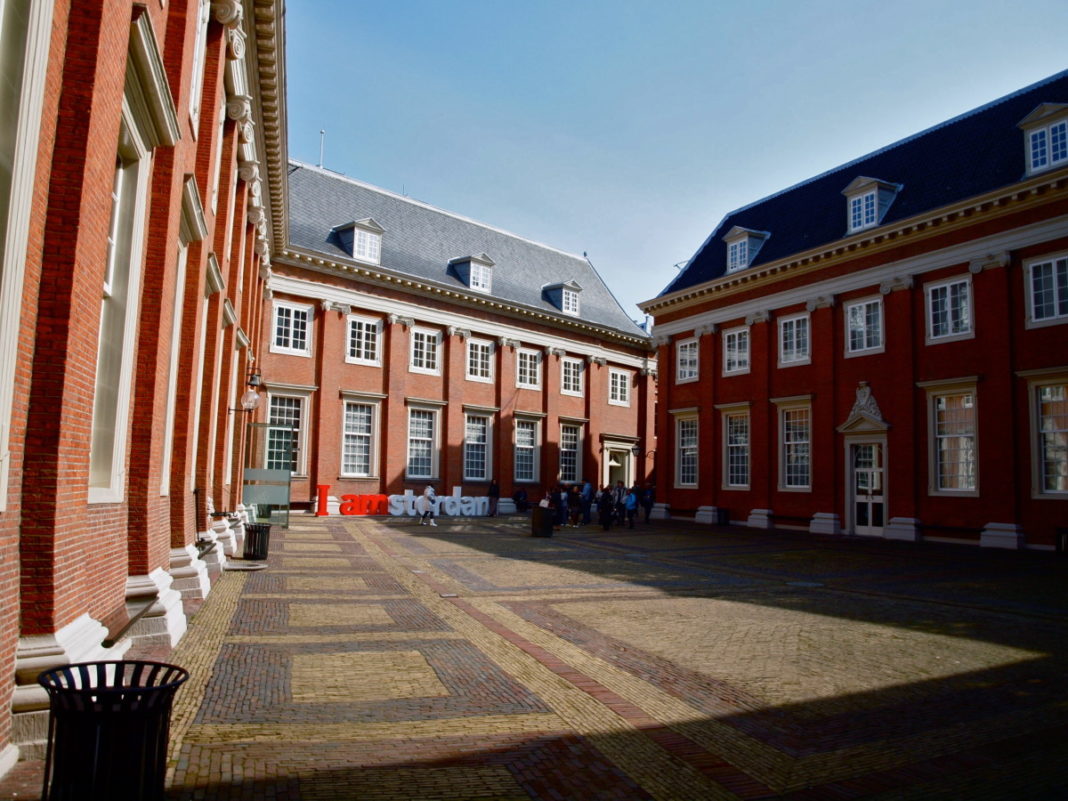The Amsterdam Museum in (you guessed it) Amsterdam is going to be dropping the term ‘Golden Age’ from their permanent exhibition ‘Hollanders of the Golden Age’, reports RTL News. However, reactions to this move have been mixed where the Amsterdam Rijksmuseum has stated that they will be retaining the term.
The Amsterdam Museum will be changing the name to ‘Group Portraits of the 17th Century’ as the term “does not cover the load of historical reality in this period”, they write on their website. Curator Tom van der Molen says that the term ignores “the many negative sides of the seventeenth century such as poverty, war, forced labor, and human trafficking”.
Today in “news which will send people crazy”:
Amsterdam Museum will stop using the phrase ‘Golden Age’ because it wasn’t actually that golden for all the slaves and colonized peoplehttps://t.co/HCGpGgplBQ— Ben Coates (@bencoates1) September 13, 2019
The Dutch Golden Age
This age in Western history largely spans the 17th century in the history of the Netherlands where many great things happened, but it also was a time when “poverty, war, forced labor, and human trafficking” was also present, says van der Molen. Using the term invokes feelings of national pride, but it should also not be used to ignore the realities that were present during this period.

By dropping this term, the museum moves closer to what they have been working towards: making the museum more relevant and inclusive to all people. “That is a process that the museum, together with people from the city, has been working on for years. The Amsterdam Museum gives room to people and stories that are not heard, or heard insufficiently.”
Dutch Twitter is going crazy because @AmsterdamMuseum disavowed the use 'Golden Age' for 17th century.
According to critics it 'erases' our history.#TwitterHistorians
— Jip Barreveld (@BarreveldJip) September 13, 2019
They will also be having a symposium on September 29 to determine how exactly the history of the 17th century should be presented to a wider audience, so that it does not ignore any part of the period. They will also be having a photo exhibition on the same day called “Hollandse Meesters Her-Zien”, moving the spotlight on 13 Amsterdammers who were people of colour.
Reactions to dropping the term
However, a lot of people do not understand why dropping the term is necessary. As VVD’s MP El Yassini says to NOS, “First the street signs had to be removed, then the statues and now the entire Golden Age. I prefer that the Amsterdam Museum explain what the Golden Age has brought to our country and what the negative sides of it are. That is also the task of a museum. ”
White Dutch people waking up to the news that the historical period of slave trade and colonial robbery won’t be referred to as the “Golden Age” any more. pic.twitter.com/91mTgekFXC
— Four Seasons Total Dan-scaping (@DanHF) September 13, 2019
The famous Amsterdam Rijksmuseum will also be retaining the term as they don’t believe just dropping the term is necessary. “The name refers to a period in the history of great prosperity,” director Taco Dibbits told the NOS. “That does not mean that there is no eye for the shadow sides. For example, we will do so next year with an exhibition about slavery.”
Confronting the Netherlands’ colonial past
This has been a growing sentiment within the Netherlands where the Dutchies have been coming to terms with how its colonial past manifests today. Just last year, a bust of Johan Maurits van Nassau, a governor of the Dutch colonies in Brazil, was taken down in the Mauritshuis in The Hague.
Additionally, JP Coenschool in Amsterdam, changed its name as it felt the weight of the controversies surrounding the 17th-century colonialist, Jan Pieterszoon Coen.
What do you make of this move by The Amsterdam Museum and the Rijksmuseum? Do you think it is sufficient to just drop the term? How do you think the history of the Netherlands and its colonial past can be presented so that it shows all sides of the period? Let us know your thoughts in the comments below!
Feature Image: Alejandro/flickr



I think I am going to throw up. SJWs strike again!
Re-writing history with a 20/20 hindsight! What is easier to do? And he, it was the Gouden Eeuw for the rich and wealthy Dutch. Not for the slaves, not for the plundered and abused black and brown people in the countries they “ did Commerce with”. But also not for the poor, hard working Dutch people who were often homeless and went without food or future.
I always wonder, when someone decide to re-write history, what someone 500 years in future would re-write about this era.
Good God! How long do we have to endure this apology tour? When you erase “Golden Age,” “Renaissance,” and other notable eras, history becomes a bland mishmash, with no age or culture recognized for doing great things. Of course, colonialism was brutal, but who are we to stand in judgment, when our present age suffers from drugs, slavery, and human trafficking? The real lesson of history is that we aren’t any more moral than our ancestors, but in different times and places, certain groups managed to rise above their circumstances and touch the sublime.
First issue is of course that the Dutch Golden Age does not magically coincide with the round numbers of 1600 to 1700 like the 17 century does. Some historians claim with good reason it was from the 1570’s to the 1670’s, as an open minded foreigner would know, golden age is a translation of ‘gouden eeuw’ which means 100 years in Dutch.
The second is that it’s called the Golden Age, not the Rosy Age or the Age of peace and happiness or something. I always thought that was because of the association between gold and wealth, and the Dutch Republic was incredibly wealthy.
The third issue is that the anglophones are limited to the anglophonic version of history, which is partly propaganda from the past and partly projection of British colonial history on the Dutch Republic, and still take that for proper history like in the video. It’s simply wrong. I’m sure the English got mostly rich from colonialism and crime, the Dutch did some too but they got rich from proper trade within Europe. It’s nonsense to picture the Dutch ’empire’ as a miniature British Empire.
The British wouldn’t know that because they couldn’t compete in trade with the Dutch and weren’t in the Baltic Sea or Mediterranean when the Dutch dominated everyone. The Dutch did more than half of all Europe’s trade, had far more merchant ships than the other European powers combined, and they were only with 1.5-2 million people, of course they were loaded. They went out into to the East and West because of the independence war against the Spanish Empire.
So it’s not really about confronting Dutch colonial past, it’s about confronting the Dutch with American problems in a British/American narrative projected on teh Dutch past they hardly have a clue about. The Dutch know very well they did some crimes on the side, most exaggerate them and the economic imporance of those hugely. Post war was better than pre war II, the 20th century was better than the 19th, the 18th not so much and the 17th century was a huge step forward for mankind, thanks to the Dutch mainly. The Middle Ages were of course even worse and the Romans were terrible by today’s standards.
But for many of today standards there’s the Dutch Republic to be thanked more than any other country. Not so sure if the 21th century will be better than the 20th though, with all this racist nonsense beeing imported from the USA.
Very, VERY, well put!!